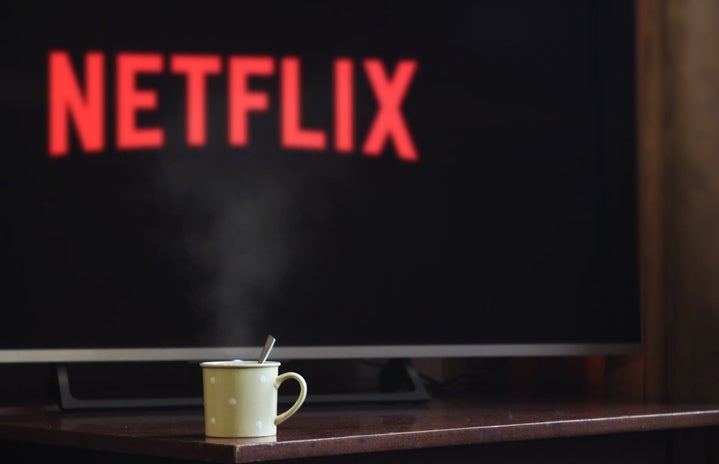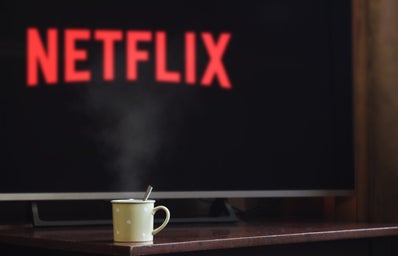Having a library card was like having the key to the world. The possibilities of where I could travel and what I could learn were endless. One day might hold the secrets of the ancient pyramids of Giza, while the next would unlock the fabled realm of Tolkien’s Middle Earth, the home of fantastical beings such as elves and talking trees. Unfortunately, I was that kid who left the library with a stack of books nearly as tall as I was. People would see the cover of whatever book I had stumbled upon more often than my face– to the point where my friend who borrowed my copy of said book was mistaken for me, despite being a solid 5 inches taller and far better looking than I could ever claim to be. I had an agreement with the school librarian to borrow extra books during breaks and a self-imposed rule to always read the source material for any book-based movie. To put it lightly, I was obnoxious. But truly, there are worse vices to have.
It is no wonder that being such an avid reader, I had an ongoing love-hate relationship with media adapted from my precious novels. My eyes were primed and ready to hunt down every innocuous press release regarding casting, filming, and the involvement of the author. The likes of Cassandra Clare, author of the Mortal Instruments, and John Green stood on sky high pedestals with their regular social media updates and a well-documented, vested interest in fan-made words inspired by their creations. Yes, I was nearly vibrating with excitement to see the torrid romance of Hazel Grace and Augustus Waters play out on screen, to see Clary and Jace grapple with the possibility of being siblings while chasing to mortal cup, to see Katniss Everdeen triumph against the authoritarian regime of of President Snow and the Capital’s sick, classist games. However, they always seemed to fall short. Nothing I saw ever seemed to steal my breath away or pull on my heartstrings quite like the blunt graphic detail of Suzanne Collins or the sarcastic humor of Rick Riordan. Nothing came close to the books. I realise now that they were heavily sanitized, and the irony of censoring a story about a dystopian government rife with misinformation and censorship is not lost to me.
Now that age — and hopefully some small degree of wisdom — have kept me from preaching about the nitpicky details that vary between any book and its on screen adaptation, I cannot help but appreciate the turnaround of media giants returning to their 2010 roots of adapting media from YA books. This new decade has been marked by a slew of movies and shows based on what are arguably some of the most bland and unimaginative storylines I have ever had the sheer misfortune of coming across. Of course, with there being a global pandemic, there wasn’t much else for me to do other than hate watching them all. Sue me. My now advanced age brought with it hopes and better, more nuanced adaptations from a society that is more aware of its inequality, divisiveness, and sheer lack of diverse representations instead of the naive hopes of a fan praying for authenticity . Most of these works did not seem to match up.
In my careful analysis during my rather casual streaming sessions I noted that there were a few ways that these adaptations seemed to consistently fall short. The first being attempts at writing nuanced takes on race relations in fiction or writing for a post-racial society (how terribly optimistic) wherein the writers rooms behind the camera seem to always make the decision to play things safe. The second erroneous error is the paltry attempts at commentary in a ‘post-feminist’ society. Note that post-feminist is in quotation marks…as in we do not live in said post-feminist society and are still in desperate need of gender equality. The last category of my criteria was the romanticizing of toxic romance. When did we decide to let rose tinted glasses hide all the red flags? There are some pieces of media that were repeat offenders in all categories, while others seem to excel in a singular failing. Bottom line is that I have bad takes, overly opinionated opinions, and a whole lot of disappointment.
Oh Bridgerton, you were a glorious hate watch that resembled a pile of glitter trying to cover up a steaming pile of shit. While there are other examples of book to TV series adaptations that fail on the front of nuanced, authentic depictions of race relations, by far the worst offender of the lot is Bridgerton. So much so that it deserves it’s own entire paragraph as it dominates in the category. The Netflix miniseries came out on Christmas day and swept the world by storm, clawing its way to the top in a matter of weeks. With Shonda Rimes at the helm it promised to be raunchy and dramatic, which it undoubtedly served…along with a microdosing of political commentary. The glittery, almost-campy, world of Julia Quinn’s Bridgerton seems like it was attempting to be an alternate history universe where people of color were equal members of British high society in the Regency era. But there is one glaring issue: the titular Bridgerton family is all white. This may not seem like a huge issue at first, given that the male lead of the season and influential members of the supporting cast are BIPOC (Black Indigenous People of Color for those of you who have been living under a rock). However, the Bridgerton family is a powerful and respected cornerstone of the Ton, and thus wields a significant degree of power. Power that can be abused in a scene of non consensual intercourse between the romantic leads, which irregardless of gender, intent, or social standing is still wrong. Power that will also set up an interesting dynamic in the upcoming season wherein the female lead is in a lower socioeconomic class and is played by an actress of Indian descent. Yet another glaring issue is the allusion to the fact that there were previously tense, segregated race relations prior to the crowning of a BIPOC queen, after which everything magically got better. This lazy exposition took mere seconds to mention between two characters and was neither referenced nor built upon afterwards. In my humble opinion, I think it is safe to say that even after making BIPOC equal in the letter of the law, social change is a long arduous process. Just look at the United States. Bridgerton desperately wanted to have their cake and eat it too.
Romance is dead….no really, you guys in the writers room killed it dead. Please tell me who set the precedent of glorifying the male leads whose only personality boils down to man-child with anger issues that are overly fixated on the female love interest. It has been over a year since To All the Boys: P.S. I Still Love You came out, and I am still angry that Lara Jean picked crusty Peter Kavinsky over John Ambrose McClaren. I know we as a society joked that ‘nice guys finish last’, but we really have to stop this trend of girls settling for minimal effort and mediocrity. While watching the movie I was genuinely convinced little Lara Jean would experience character growth, would see that she deserved better than a jealous jock who lacked any semblance of communication skills or imagination. Apparently not. Much in the same vein, we have the Kissing Booth franchise, with anger issues personified in Jacob Elordi’s character. He screams, he fights, straight up guiltrips the female lead into getting into a car where she feels unsafe, but this is all excused in the name of love. Not too surprised by this given that, like After, its wattpad to publishing house brethren, it is by no means the height of healthy romantic source material. These adaptations seem to follow the trend of screaming and making up for no other reason than plot convenience.
All in all I have largely given up on watching anything produced in the near future that is not based on an original story line. Book adaptations of the past were not great, but at least they had somewhat decent source material (not you Divergent). The adaptations made today have mediocre storylines in the original novels, and despite the amount of freedom the writers have to change things to fit modern standards, these series fall short spectacularly.


